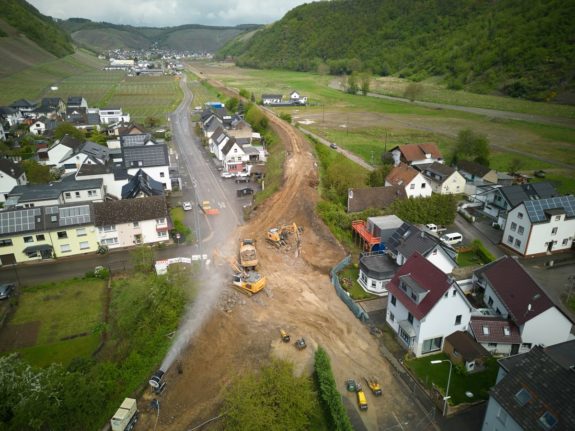Mannichl was hospitalised until just before Christmas with critical injuries after he said he was stabbed on his front porch by a skinhead on December 13. The 52-year-old reported that the man said something along the lines of, “Greetings from the national resistance,” and said, “You leftist pig cop, you won’t trample on the graves of our comrades anymore,” before stabbing Mannichl in the stomach with a 12-centimetre knife.
Police began immediately looking for right-wing extremist suspects, but “experienced investigators” told the paper that “something doesn’t fit” with the information Mannichl gave them.
“That kind of setting points towards a relationship-related crime,” one officer said.
First, the police chief – the only witness to the crime – was able to provide only a vague description of his attacker who he said was about 6 feet tall with a round face with a shaved head, the paper said. A neighbourhood witness said she’d seen a man with a snake tattooed behind his ear and possibly a cross on his face. But investigators told the paper they can’t find men to fit either description and that the witness’ information may be unreliable.
“When someone with a tattoo like that commits a crime, it’s as if a bank robber put an identification card on his chest and marches into a bank,” one said. “You recognise people like this.”
Meanwhile, police in Germany, Austria and the Czech Republic have combed through their records of documented neo-Nazis to no avail.
Another questionable element to Mannichl’s account of the crime is that the knife came from his own home and had been used to cut cake at a neighbour’s party a few days before. But investigators have not yet found traces of cake, foreign DNA or evidence that the stabber was wearing gloves, the Süddeutsche Zeitung reported.
Family members are usually investigated immediately in such cases, but Mannichl’s family was not questioned until several days after the stabbing. Mannichl has, however, been “cooperative” with the probe into his private life, the paper reported.
Spokesperson for the Bavarian state office of investigation, Detlef Puchelt, told the paper that there are currently no new leads in the Mannichl case, and that the special commission for the investigation should be allowed to work in peace.
Mannichl returned to work after his convalescence on Wednesday and told reporters then that investigations into cases like this can take weeks to years.



 Please whitelist us to continue reading.
Please whitelist us to continue reading.